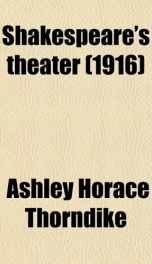literature in a changing age

Purchase of this book includes free trial access to www.million-books.com where you can read more than a million books for free. This is an OCR edition with typos. Excerpt from book: CHAPTER II THE READING PUBLIC Lockhart has given a vivid description of the famous conference of May, 1825, in which Constable set forth to Walter Scott with " exulting and blazing fancy " his projects for a " total revolution in the art and traffic of bookselling." Printing and bookselling as instruments both for enlightening mankind and for making money, he declared were still in the cradle. On the basis of the tax lists, he had figured out the large number of persons who could afford luxuries in contrast to the small number who 'bought books; and he prophesied that if he lived six years he would put a good library into every decent house, and that even the shepherd's ingle-nook itself should not want a shelf for novels. Cheap books was the watch-word, and the project was " a three-shilling or half-crown volume every month, which must and shall sell, not by thousands or tens of thousands, but by hundreds of thousands, ay, by millions." " You are indeed likely to be the grand Napoleon of the realms of print," said Scott warming to the project. He promised his hearty cooperation and suggested a change from fiction to history as likely to suit " the demands of the increased circles among which literature does already find its way." " What say you to taking the field with a Life of the other Napoleon?" The great scheme was actually begun with one half of "Waveriey" forming the first two volumes of the series, but, within the year, the failure of the Napoleon of publishers brought the series to an abrupt end. The interview proved prophetic, however, of the great developments in printing and publishing in order to meet the demands of a rapidly increasing reading public. The century since Scott and Constable planned their new conquests has seen an ever expanding demand f...
Info about the book
Author:
Series:
Unknown
ISBN:
0786463082
Rating:
4/5 (4)Your rating:
0/5
Languge:
English
Users who have this book
Users who want this book
What readers are saying
What do you think? Write your own comment on this book!
write a commentif you like literature in a changing age try:
Other books by this author
Do you want to exchange books? It’s EASY!
Get registered and find other users who want to give their favourite books to good hands!




